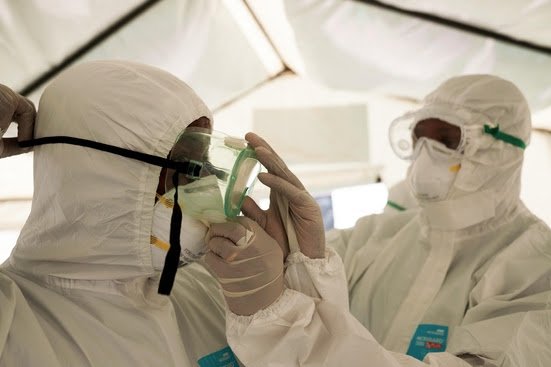
COVID-19 case count in Ghana has seen a massive jump rising from 1,550 to over 2000.
According to the Ghana Health Service, the current case count in Ghana stands at 2,074 with 17 deaths and 212 recoveries.
This means 403 new cases have been recorded over the last few days.
Below is the regional breakdown of cases
Greater Accra Region – 1,795
Ashanti Region – 99
Eastern Region – 70
Central Region – 21
Oti Region – 19
Upper East Region – 19
Volta Region – 16
Northern Region – 13
Upper West Region – 10
Western Region – 9
Meanwhile, Director-General of Ghana AIDS Commission says COVID-19 is more dangerous than HIV AIDS.
According to Kyeremeh Atuahene, while patients of AIDS can live for many years with medication and healthy lifestyle, COVID-19 does not offer such an opportunity to victims with weak immune systems.
Speaking to Francis Abban on the Morning Starr Thursday, Mr Atuahene appealed to Ghanaians to stick to the safety protocols announced by government in order to avoid the havoc that has been caused by the virus in other places.
“HIV AIDS has been around for over 40 years and people still live it with. Those who stick with the drugs stay for a very long time. It is not the same with COVID 19. COVID-19 is more dangerous than HIV AIDS,” he said.
He also warned COVID-19 will spread rapidly if people continue to stigmatise victims of the virus.
He said patients of viral diseases who cannot stand societal neglect often keep mute over the status so they can be accepted in society.
“If you stigmatise them, they will hide their status and spread it because nobody wants to be rejected by society. If we do not support them, we are putting everybody’s life at risk,” he warned.
It comes in the wake of concerns over rising discrimination against people who have recovered from the virus.
According to the Deputy Director in charge of monitoring at the Ghana Ambulance Service, Yaw Osei Some communities in Ghana have resorted to the use of landguards to remove recovered COVID-19 patients from among them.
According to Yaw Osei, due to the increasing level of stigmatization in communities, most recovered COVID-19 patients insist on returning to the treatment centres after going back home.
“We had a situation where some people (recovered patients) were sent home and they called back that they can’t stay because everybody in the house is after them. Most of our people live in compound houses so when they are exposed, and they go back there, acceptance becomes a challenge so we have had a situation where we had to go back and pick up the patient from the house because they are not being welcomed, so they prefer to stay at the treatment centre instead,” he revealed.
He added: “And we have had a situation whereby people have organized landguards to go and move people from the community because they believe that they are COVID-19 patients and we have had to go and move such people back to the treatment centre”.
Source: Ghana/Starrfm.com.gh/103.5FM

